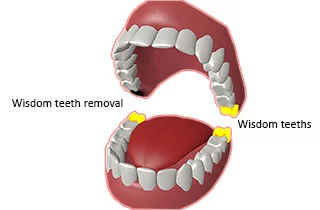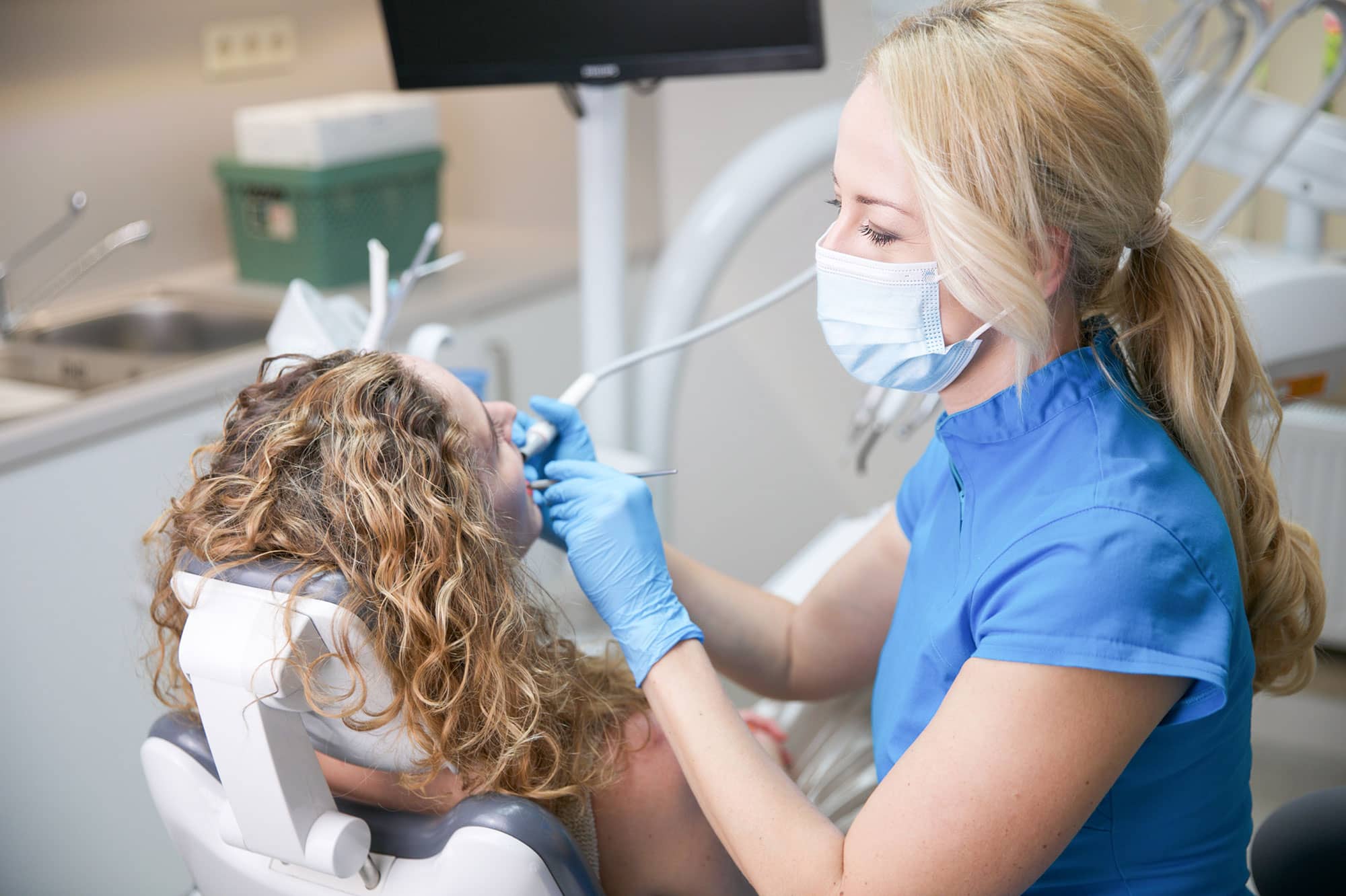Did you know that only those people have a 32-toothed denture whose wisdom teeth have grown out? Do we have to worry if we do not have that many teeth? Moreover, should we worry if we have that many? If you are curious about the reason for the above-mentioned paradox, stay tuned!
In this article you will get answers to the following questions:
- General information about the wisdom teeth
- Do all wisdom teeth grow out?
- Semi-grown wisdom tooth
- When is not worth removing the wisdom tooth
- What causes wisdom teeth removal in most cases?
- Is wisdom teeth removal always difficult? For both upper and lower jaws?
- What does root amputation mean?
- When is bone augmentation surgery necessary?
- What should I do after the extraction of my wisdom teeth?

General information about the wisdom teeth
Wisdom teeth, also known as third molars, are the last molars on each side on the upper and lower jaws.Wisdom teeth typically appear between the age of 16 and 30. This process can be painful, can be extensive or problematic, but can be almost unobserved, too. All four wisdom teeth may appear, or just a few of them.
Do all wisdom teeth grow out?
It often happens that the wisdom tooth does not grow out, in other words, it stays in the jawbone since there is not enough space for it in the mouth. Sometimes it is enough to cut the gums around the tooth to help the wisdom tooth to escape.
However, if the tooth cannot come out, it can start pushing the entire denture forward. This can cause aesthetic disorders, congestion, and even biting difficulties. Therefore, it is justified to address the problem.
Semi-grown wisdom tooth
It is also possible that the wisdom tooth only grows halfway. The half-erupted tooth is difficult to clean, and pain and inflammation can often evolve around it, which gives rise to new problems.
For wisdom teeth that did not grow out at all or are half-grown, it is worth considering the removal of the tooth.
When is not worth removing the wisdom tooth
A wisdom tooth is not removed if it does not cause any complaints to the patient. In many cases, they do not even need to be pulled out despite the existing complaints, as some of the problems can be treated, so the tooth can be saved and be an active part of the diet.
Besides, a wisdom tooth cannot be removed if there is a risk of anatomical damage to its surroundings.
What causes wisdom teeth removal in most cases?
Only about 13 percent of the population are fortunate enough to live with their wisdom teeth without any complaints. Those who aren’t so lucky are going to meet, sooner or later, the problem of wisdom teeth removal.
Usually, there isn’t always enough room in the mouth for the wisdom teeth to grow properly. Because of the lack of space, they sometimes can get stuck and emerge only partially. Wisdom teeth that grow like this, are called “impacted”. If you are experiencing pain or discomfort from your wisdom teeth, it is very important make an appointment to see your dentist.
Is wisdom teeth removal always difficult? For both upper and lower jaws?
A wisdom tooth has three roots, so the oral surgeon needs special tools during surgery. The specialist often cuts up the tooth since it is easier to remove it in pieces than all at once.
Lower wisdom tooth removal is more difficult than upper wisdom tooth removal. Also, the difficulty increases with the degree of impaction, if the tooth is grossly decayed and also with age. Most lower wisdom teeth are stuck and can’t be removed like other teeth. This is why your dentist refers you to an oral surgeon. Generally, it is necessary to make a cut in the gum, expose the jaw bone in that area and use a drill to free the tooth and remove it.
What does root amputation mean?
Dental root amputation is performed when a patient develops a periodontal problem or an endodontic problem around one of the roots of a not treatable tooth. If the choice is between extracting the whole tooth or just extracting the one root, a dentist will recommend taking out the root while leaving the top part of the tooth intact. This process is similar to a root canal treatment. That operation replaces infected dental pulp in order to save a tooth.
When is bone augmentation surgery necessary?
When teeth are lost, often with age, the bone mass decreases. If the bone under your gum is not high enough, not wide enough, or both, you will need a surgery to add bone to your jaw.
What should I do after the extraction of my wisdom teeth?
After the extraction of your wisdom teeth, you will probably experience pain and swelling. There may even be some bleeding. While the wound in your mouth heals, you have to be careful not to dislodge the blood clot or harm your healing gums. You should not consume solid foods, alcohol, coffee, soda or hot beverages in the first few days following your procedure. You shouldn’t even brush your teeth on the first day of recovery. Of course using ice packs is going to moderate the swelling of your cheeks.
Complete healing typically takes three or four weeks after the removal of the lower wisdom tooth and five or six weeks after the removal of the upper wisdom tooth.

